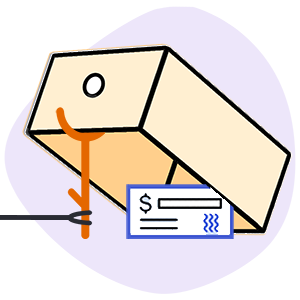How to Stop Credit Card Fees for Workers' Comp Treatment

We’ve said it many times before, and we’ll keep saying it: providers should never accept credit cards as payment for the treatment of injured workers.
Why not? Because the provider pays the credit card processing fees, which can be over 3% of the total reimbursement amount. This loss of revenue can add up to a significant amount — and for zero benefits to the practice.
Moreover, some states already require payment within short time periods, especially for electronic billing. For instance, California mandates 15 working days for electronic workers’ compensation bills; accepting credit card fees won’t speed up that timeline.
Below, we list the companies known to daisyBill to remit “virtual” credit card (VCC) payments to providers. More importantly, we include the contact information necessary to actively (and immediately) opt out of accepting credit card payments — which every practice should. Today!
Credit Card Payments: Just Say ‘No’
Providers who accept credit card payments pay fees of 2%, 3%, or even 5% of the total workers’ comp reimbursement. This loss of revenue is pointless — and optional! Claims administrators cannot force providers to accept credit card payments; there is no rational reason to accept them voluntarily.
If a claims administrator promises “faster” payment in credit card form, it’s an empty offer. As mentioned above, the payment deadline for e-bills is 15 days (daisyBill providers receive payment in 8.7 days, on average — just sayin’).
Of course, some claims administrators might try to keep paying by card, even after your practice asks them not to. This may necessitate contacting the entity that issues these credit card payments on the claims administrator’s behalf to request (free) EFT or (free) checks as payment.
For that reason, below we list those entities, along with the company or division website, and the phone number and email address, where available.
Company |
Card Type |
Phone |
|
Mastercard |
888-679-2342 |
None |
|
Visa / Mastercard |
888-457-6435
|
None |
|
Mastercard |
855-388-8371
|
support@vpayusa.com |
|
Mastercard |
None |
ddpaysupport@datadimensions.com |
|
Mastercard |
877-313-4898
|
providers@oneinc.com |
|
Mastercard |
877-738-8070
|
None |
Below are examples of VCC payments sent by claims administrators with the Explanations of Review (EORs). As shown, each document provides contact information for providers to update the payment method accepted by their practice.
If your office receives payments by credit card from companies other than those listed above, look for a similar document. Use the contact information provided to insist on check or Electronic Funds Transfer (EFT) payments. Cancel this pointless and expensive revenue sharing immediately.
ECHO Mastercard
ECHO Visa
VPay
Data Dimensions ModalPay
One Inc
Zelis
Edited July 10, 2024, for clarity.
Make workers’ comp easy. Harness the power of daisyBill software, data, and expertise for faster, better workers’ comp billing. Request a demo below.
REQUEST DEMO
DaisyBill provides content as an insightful service to its readers and clients. It does not offer legal advice and cannot guarantee the accuracy or suitability of its content for a particular purpose.




.gif)
I have tried doing this and have been told that the insurance company uses these entities to do the EFT. Therefore we are subject to these processing fees charged by Zelis.
Every time I receive a card I request an "Opt Out" and to only receive checks but that seems to increase the number of VC payments we get. Is there no end?
From what I have heard, these companies go to payors and offer them to run their AP department for free. In lieu, they ask for this nonsense. This is only going to grow. We have been approached as a small business by these companies to pay our vendors via these cards!